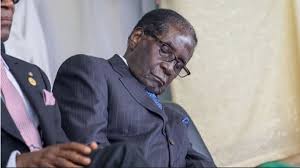Zimbabwe’s Finance Ministry has budgeted for an increase in salaries and allowances for the country’s 93-year-old leader and his two deputies.
Lucky President Robert Mugabe and his top aides Emmerson Mnangagwa and Phelekezela Mphoko will be smiling to their banks as they will be earning a lot more from now onwards despite calls for belt-tightening measures in government due to worsening fiscal pressures.
The country’s top three civil servants are likely to gross a combined US$672 000 this year, up from US$624 000 last year, according to the revised edition of the 2017 National Budget estimates of expenditure, otherwise known as the Blue Book.
This would represent a 7,69 percent increase.
In 2015, Mugabe indicated that he was earning US$12 000 per month, including an allowance of US$2 000. He is obviously now earning much more in terms of both his salary and allowances.
Former finance minister, Tendai Biti, described the revised salary and allowance budget for members of the presidium as unsustainable.
“How can the President of Zimbabwe earn more than the Prime Minister of Britain? It’s ridiculous. The British Prime Minister presides over an economy worth US$3 trillion; our Gross Domestic Product (GDP) is a paltry US$10 billion. This economy cannot sustain those obscene salaries. I used to pay him US$4 000,” said Biti, who was finance minister during the inclusive government (2009 to 2013),” he said.
Chinese President Xi Jinping, who oversees an economy whose GDP is in excess of US$11 trillion, gets just US$1 734 per month.
In Zimbabwe, on average, a civil servant earns around US$300 per month, a figure which is way below the poverty datum line, currently pegged at US$660 for a family of six.













